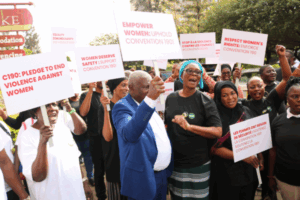Effective trade union advocacy and collective bargaining under the African Continental Free Trade Area (AfCFTA) depends on the active engagement of workers across diverse sectors. It is crucial to consider how workers perceive the significance of the AfCFTA.
Research on awareness, knowledge and challenges of the AfCFTA among African workers , a recent study of the African Labour Research and Education Institute (ALREI) of ITUC-Africa, provides insights into workers’ perceptions of the AfCFTA by addressing the following questions:
1. How informed are workers about AfCFTA and its effects on their livelihoods?
2. What do workers think about the potential benefits and challenges of AfCFTA, and do they have any specific concerns or reservations?
3. Do workers view AfCFTA as relevant to their daily lives, and do they feel empowered to engage in discussions and activities on the Agreement?
By focusing on workers, this research enriches our understanding of AfCFTA’s potential and the crucial areas for achieving inclusive and sustainable economic development.
A snapshot of demographics of survey participants
A diverse sample of workers representing various sectors and educational backgrounds across 47 AfCFTA State Parties in five regions. The survey participants were 2,896 workers in formal and informal sectors, leading to several recommendations for enhancing the engagement, understanding and perspectives of workers who form the backbone of the African economy.
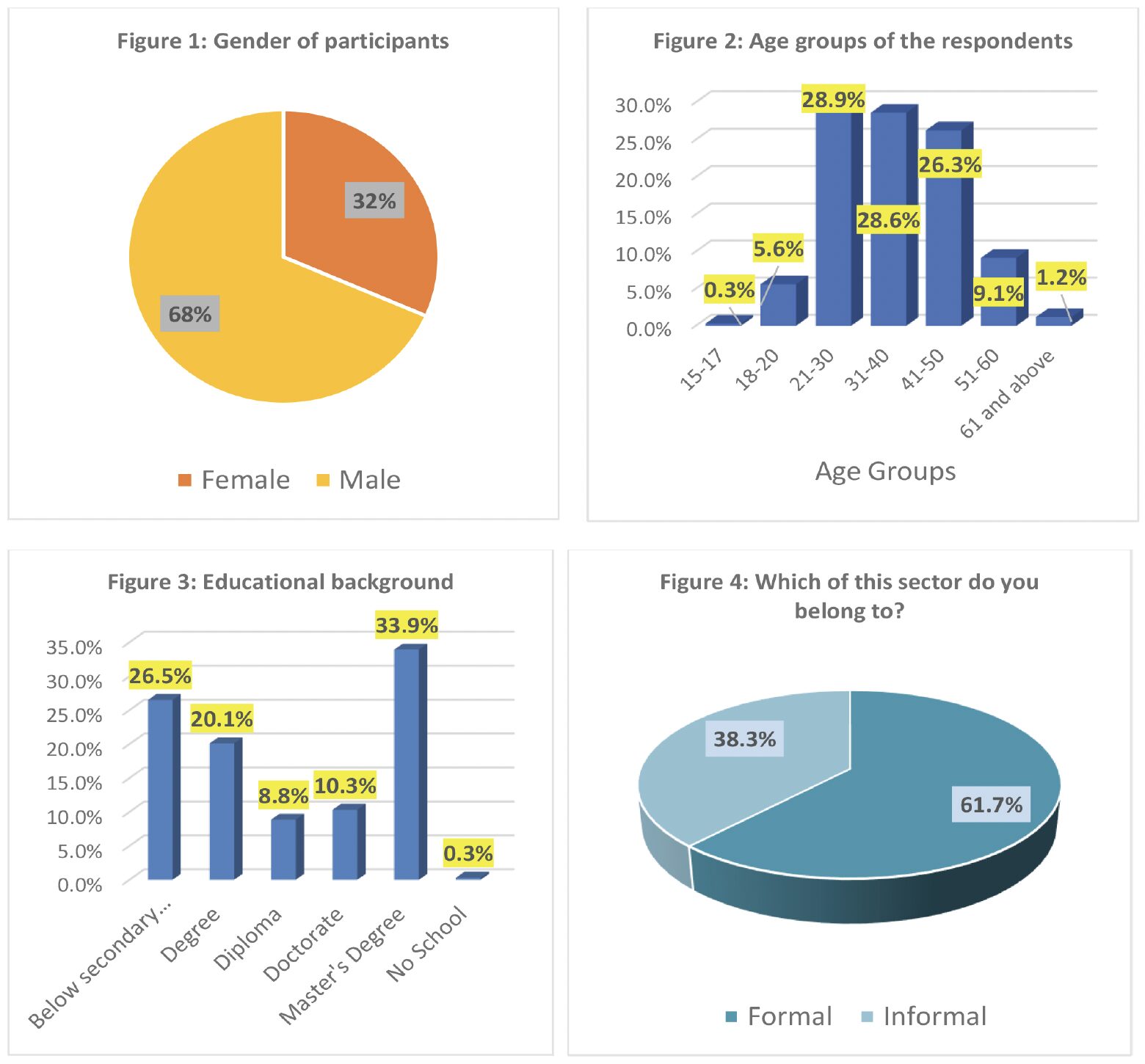
Summary study findings
How well-informed are workers about AfCFTA and its impact on their livelihoods?
Most workers (78.8%) know the AfCFTA exists but lack a deep understanding of the trade agreement and its implications.
60.4% of the survey participants expressed a low level of understanding about AfCFTA, indicating gaps in knowledge on topics like trade in goods and services, trade procedures, investment nuances, intellectual property rights, and benefits of the free trade agreement.
Most participants believe that AfCFTA awareness and knowledge among peers, co-workers and citizens are generally low. 57.7% explicitly mentioned lacking information on how to access, engage with, and derive benefits from trade agreements. Regionally, disparities are evident, with Central Africa having the lowest AfCFTA awareness and knowledge compared to other regions.
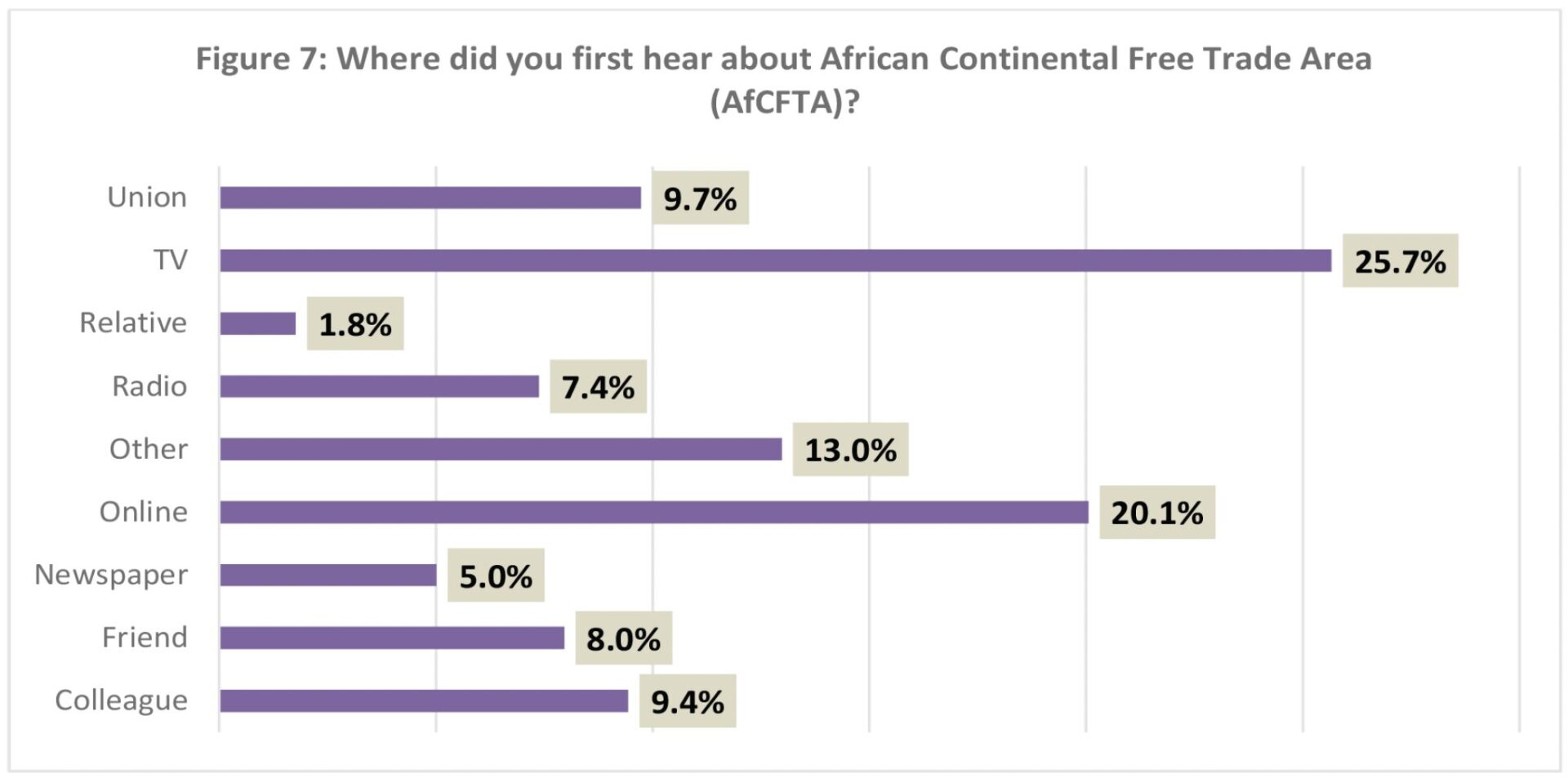
What are workers' perceptions regarding the potential benefits and challenges of AfCFTA, and do they have any specific concerns or reservations?
67.6% of respondents believe AfCFTA will benefit African workers, despite some concerns (45.1%). Over 80% are willing to advocate for it. There is optimism about its impact on gender equality and youth employment, though uncertainty remains in East Africa. Targeted initiatives may be needed to address concerns in different regions.
Do workers consider AfCFTA relevant to their daily lives, and do they feel empowered to participate in discussions and actions related to the agreement?
The survey analysed AfCFTA’s relevance to different workforce segments and identified potential winners and losers under the agreement. While the trade agreement holds more relevance for skilled workers, youth, and women, disparities exist across sectors, with some anticipating significant benefits while others foresee limited gains. Notably, informal sector workers, women in unskilled jobs, and youth perceived challenges under the AfCFTA framework.
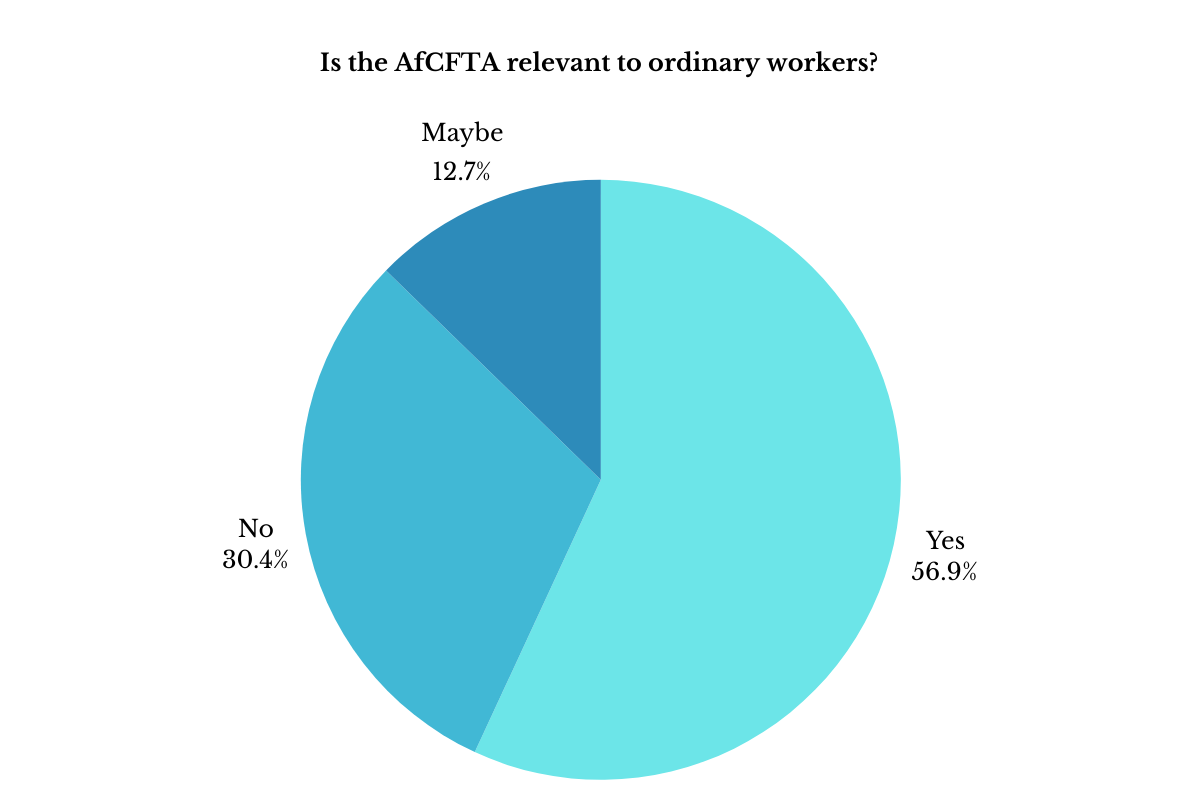
Perceived winners and losers under AfCFTA
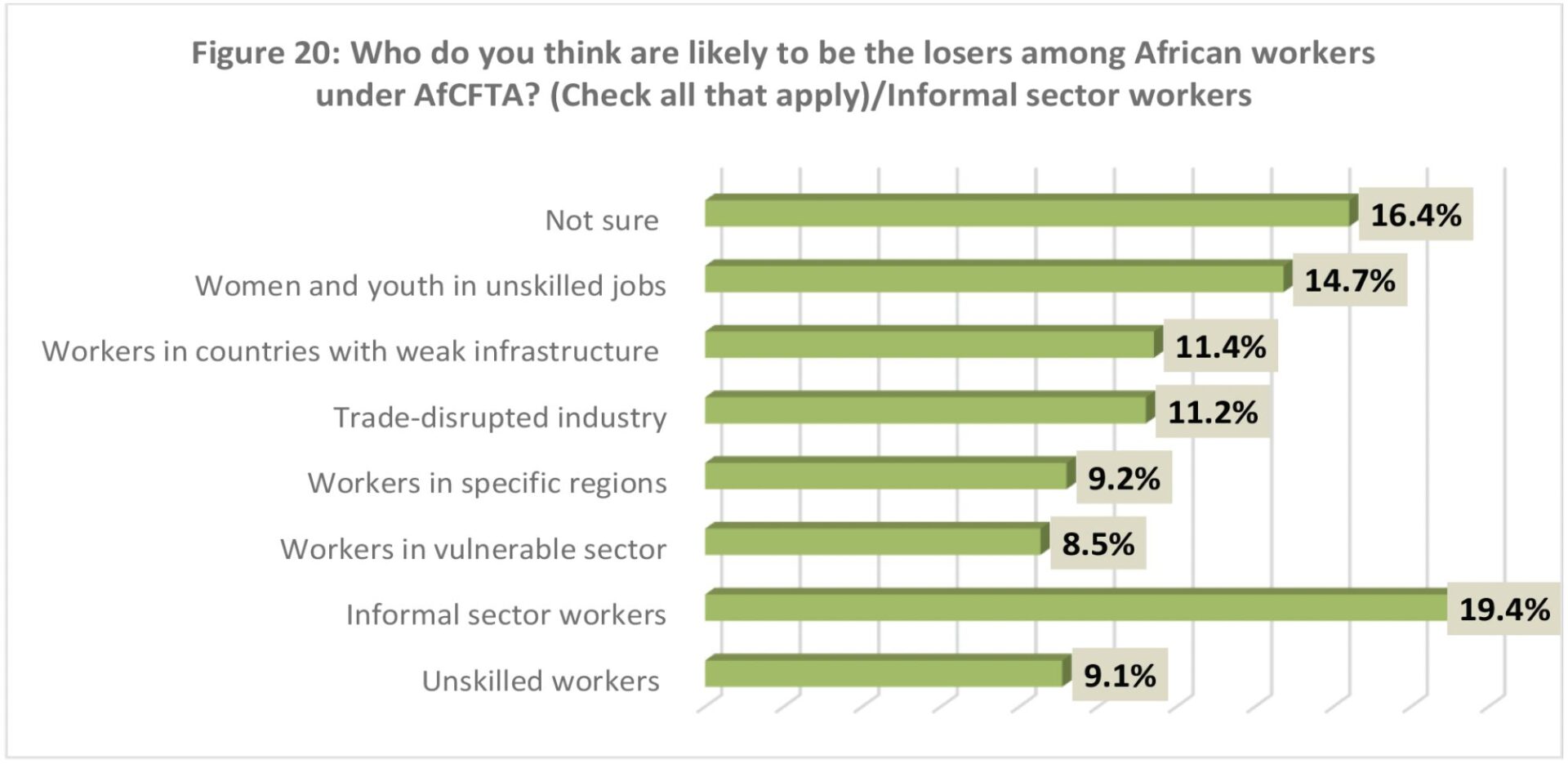
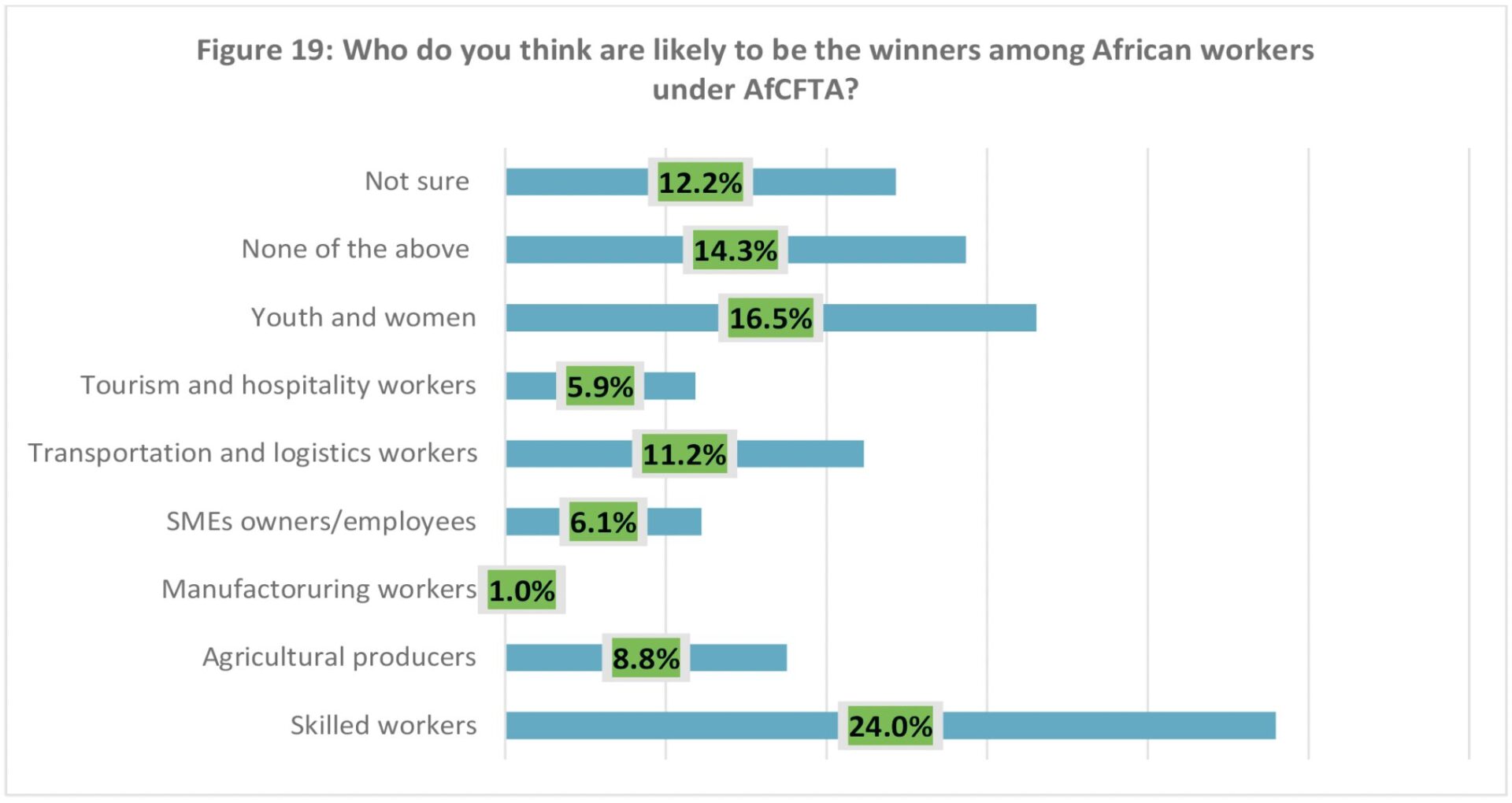
AfCFTA awareness and knowledge index
ALREI introduced AfCFTA awareness and knowledge indexes through this survey. The indexes will act as benchmarks for all efforts and campaigns for raising awareness and knowledge about AfCFTA, both at the national and regional levels in Africa.
The maiden index shows that AfCFTA knowledge is low across all regions. However, workers have a satisfactory level of awareness of the AfCFTA, which can be a foundation for further deepening their understanding and knowledge.
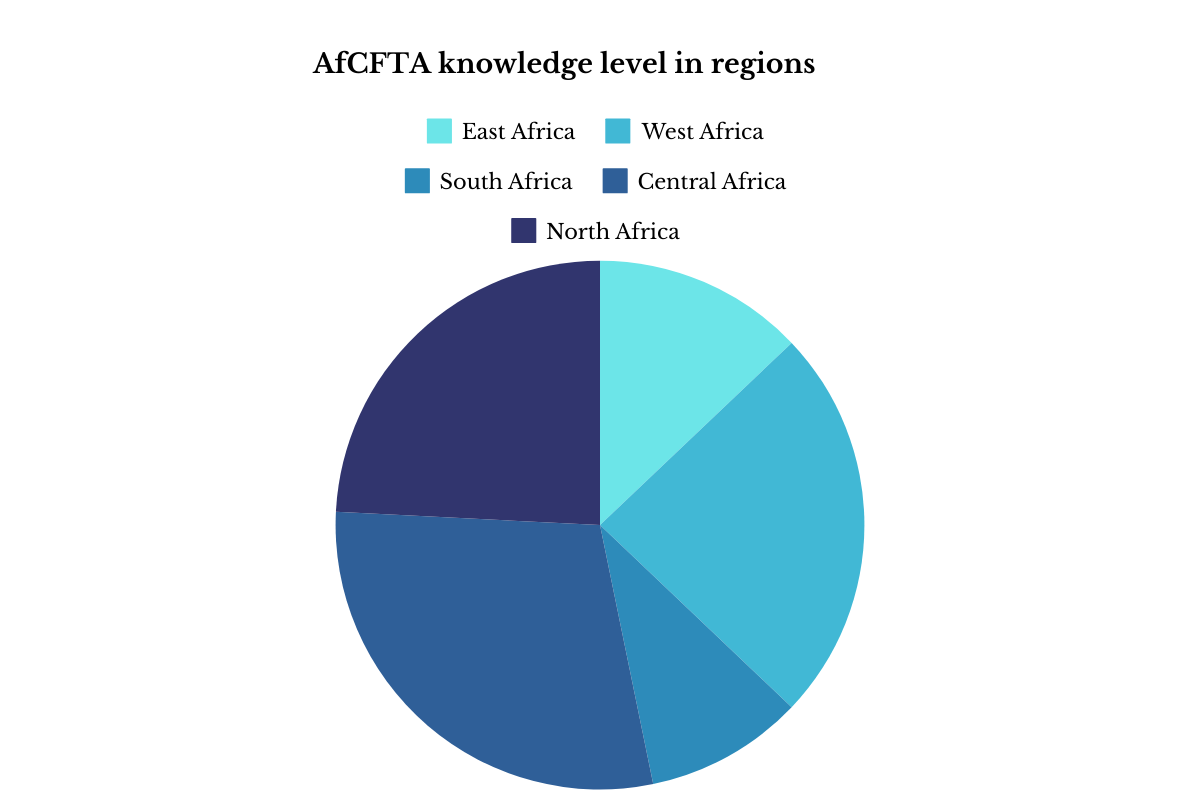
Recommendations
The survey findings point towards several recommendations for trade union action:
- Use appropriate media channels and educational platforms to raise awareness and enhance understanding of AfCFTA among workers.
- Partner with relevant institutions and organisations to conduct seminars, workshops, and training programs to equip workers with the knowledge and skills to navigate AfCFTA effectively.
- Boost awareness and knowledge about AfCFTA by adopting and applying the proposed indexes introduced by the ALREI survey. These indexes will set standards for all awareness and knowledge initiatives and campaigns on AfCFTA, nationally and regionally across Africa.
- Conduct yearly surveys to validate the proposed AfCFTA knowledge index to enhance understanding of AfCFTA, address labour-related issues, and advance the Sustainable Development Goals. Commission sectoral reports on awareness and knowledge as needed.
- Initiate special programs to promote the inclusion and empowerment of women and youth within the context of AfCFTA.
- Address ways regions can improve access to African markets via the trade in goods and services protocol.
- Research potential job opportunities under AfCFTA, including which sectors will benefit, job types created, and distribution of job opportunities in different workforce segments.
- Collaborate with partners to promote the AfCFTA agenda to benefit all workers.
Challenges and opportunities for workers under the AfCFTA
Key challenges
Employment dynamics and job displacement: AfCFTA offers opportunities for job creation but also raises concerns about job displacement in specific sectors. Some sectors, including agriculture, textiles, and low-skilled manufacturing, might face challenges due to increased competition from other countries [African Development Bank Group].
Informal sector integration and regulatory hurdles: It can be challenging to include the informal sector in the formal economy due to limited resources and regulatory obstacles. Tailored policies are necessary to assist informal workers in transitioning to and following formal trade regulations.
Gender disparity and inclusion: Gender disparities persist within AfCFTA, highlighting the need for gender-sensitive policies to empower women in trade-related activities. Various studies show that the AfCFTA could increase women’s labour force participation and narrow the gender wage gap.
Challenges in specific African countries
Nigeria: The manufacturing sector is at risk due to competition from neighbouring countries. Employment within the textile industry declined due to competition from cheaper imports post-AfCFTA implementation.
Kenya: Risks job losses in the manufacturing sector, according to a study by the Kenya Institute for Public Policy Research and Analysis.
Ghana: There are concerns about the integration of the informal sector. Informal traders struggle to meet formal trade regulations, which hinders their participation in the formal economy.
Key opportunities
Economic empowerment: AfCFTA has the potential to stimulate economic growth and create job opportunities by establishing a single market that enhances trade volumes and business activities.
Gender equality and inclusion: In the formal economy of sub-Saharan Africa, women are overrepresented [ILO]. Gender disparities persist in the AfCFTA framework, reflecting broader challenges for women in trade. Promoting gender equality could ensure equitable participation and access to AfCFTA opportunities for women.
Agriculture sector opportunities: The agriculture sector, which employs many people in the continent, could benefit from increased productivity, value addition, and market access under AfCFTA [United Nations Economic Commission for Africa]. By removing trade barriers, there is potential for more demand for agricultural goods, leading to more jobs and better livelihoods, especially in rural areas.
Manufacturing and industrial development: The AfCFTA could lead to more industrial development and manufacturing activities [African Development Bank Group] and create jobs and diversified economies. However, we must address infrastructure needs and improve competitiveness to benefit fully.
The full study: Research on awareness, knowledge and challenges of the AfCFTA among African workers
Authors: Dr Alexander Preko and Dr Hod Anyigba (ALREI)
RELATED ARTICLE
Informal economy workers in Ghana share their expectations of the AfCFTA
Building an AfCFTA trade union campaign in Nigeria







